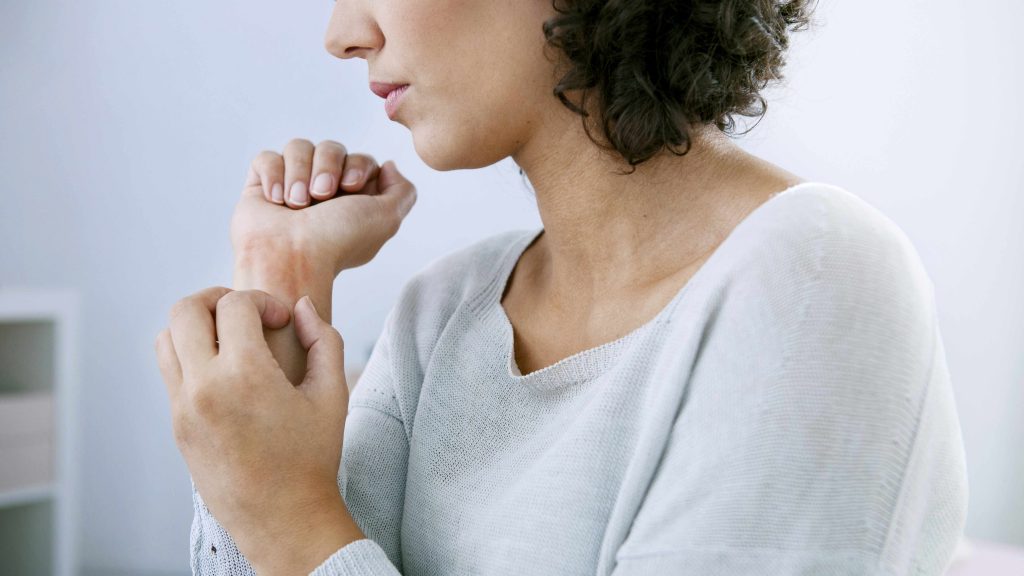-
Featured News
Home Remedies: Help with itchy hives

If your symptoms are mild, you may not need treatment. Many cases of hives and angioedema clear up on their own. But treatment can offer relief for intense itching, serious discomfort or symptoms that persist.
If you're experiencing mild hives or angioedema, these tips may help relieve your symptoms:
- Avoid triggers. These can include foods, medications, pollen, pet dander, latex and insect stings.
- Use an over-the-counter anti-itch drug. A nonprescription oral antihistamine, such as loratadine (Claritin), cetirizine (Zyrtec Allergy) or diphenhydramine (Benadryl Allergy, others), may help relieve itching.
- Apply cool, wet compresses. Covering the affected area with cool, moist bandages or dressings can help soothe the skin and prevent scratching.
- Take a comfortably cool bath. To relieve itching, sprinkle the bath water with baking soda, uncooked oatmeal or colloidal oatmeal — a finely ground oatmeal made for bathing (Aveeno, others).
- Wear loose, smooth-textured cotton clothing. Avoid wearing clothing that's rough, tight, scratchy or made from wool. This will help you avoid skin irritation.
Medications
Treatments for hives and angioedema may include prescription drugs:
- Anti-itch drugs. The standard treatment for hives and angioedema is antihistamines, medications that reduce itching, swelling and other allergy symptoms.
- Anti-inflammatory drugs. For severe hives or angioedema, doctors may sometimes prescribe an oral corticosteroid drug — such as prednisone — to reduce swelling, redness and itching.
- Drugs that suppress the immune system. If antihistamines and corticosteroids are ineffective, your doctor might prescribe a drug capable of calming an overactive immune system.
- Drugs that reduce pain and swelling. Chronic hives and angioedema may be treated with a type of nonsteroidal, anti-inflammatory medication called leukotriene antagonists.
- Blood protein controllers. If you have hereditary angioedema, a variety of medications can regulate levels of certain blood proteins and relieve your signs and symptoms.
Emergency situations
For a severe attack of hives or angioedema, you may need a trip to the emergency department and an emergency injection of epinephrine — a type of adrenaline. If you have had a serious attack or your attacks recur, despite treatment, your health care provider may have you carry a pen-like device that will allow you to self-inject epinephrine in emergencies.
This article is written by Mayo Clinic staff. Find more health and medical information on mayoclinic.org.
Related post:
Mayo Clinic Q and A: Chronic hives come and go with no clear pattern







